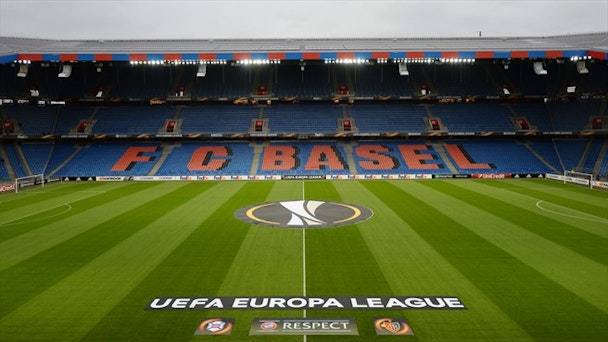Does Liverpool's Europa League final YouTube screening signal a new era for sports broadcasting?
“Interesting. Very interesting!” screamed Barry Davies on Match of the Day back in the day. Who would have thought the same could apply to Adam Lallana running round in circles, or Martin Skrtel clearing his nasal passages?

This evening Liverpool play Sevilla in the Europa League Final, Europe’s also-ran club tournament – and a chunk of UK football fans will be watching the game live on YouTube. It’s a significant eyebrow-raising development in football’s relationship with television; and worthy of a Davies shriek.
The match itself is unlikely to be memorable (although it’ll be enough for me to forgo watching the wash-up of Peggy Mitchell’s death). BT’s decision to make the game free on YouTube as part of its “wider digital strategy” throws up all manner of interesting thoughts and discussions about where sport, TV, digital platforms, broadband providers and hardware manufacturers are heading (other than the Uefa hospitality boxes in Basel).
There’s the digital platforms themselves. YouTube isn’t messing about, and its intentions are clear. CEO Susan Wojcicki got straight to the point with North American advertisers a fortnight ago, stating YouTube reaches “more 18-49 year olds during primetime than the top 10 TV shows combined”. Its claim for the mass audience – real people you meet in the pub, street or in the office – starts clouding things for the men running sports who have spent the last 20 years banking enormous cheques from TV companies.
Take the English Cricket Board for example. Sky Sports picked up a Bafta for its coverage of England’s last Ashes win, yet as Sean Ingle pointed out in the Guardian, more people watched a 1974 episode of Colombo on ITV3. In December, man of the Ashes series Joe Root failed to make the shortlist for BBC Sports Personality of the Year, and team sponsor Waitrose called it a day.
If YouTube is ‘normal TV’, where does that leave the likes of the TV companies currently staying in the game by borrowing money from the City?
It’s here we can poke around the “wider digital strategy” hinted at by BT. Whatever channel or platform the sport is on, it’s got to get into our home or onto our tablet somehow – and that requires a network. The greater the demand for content via a network, the stronger and more reliable that network needs to be.
So if you’re a telcomms company with a best-in-market broadband and mobile network, pumping stuff into people’s homes whatever its source, that’s not a bad place to be.
It also puts you in a more robust position. What happens if Tim Cook wakes up tomorrow and says, ‘Right, next, let’s do Apple Sport?’ Or Google’s Eric Schmidt says to YouTube’s Wojcicki, “Would you like me to call Richard Scudamore?”
On the one hand, they don’t need to. They may wish to wait and allow the sports bodies to continue to approach them. US sports continue to make overtures with the NBA big advocates of YouTube, and the NFL agreeing a deal to screen games exclusively on Twitter. Sport isn’t rational though – and it has a habit of making men do stupid things with their money, through the blind love of it all. Why else would we get up at 4am to go to Sunderland?
People in grey-glassed offices will start to shift uncomfortably – but for fans, that’s a day to be welcomed. More eyes on more sports at more accessible prices and on more accessible platforms? What’s not to love about that?
Jim Dowling is managing director of HSE Cake
